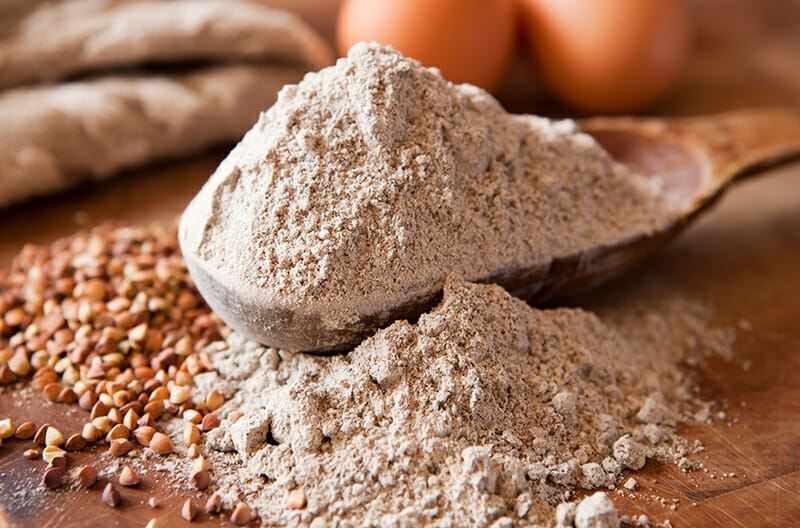Are You Gluten-Intolerant? – Gluten Free Diets
There are a few tendencies that seem to come out of nowhere and struck like a tidal wave. Then there are fads that come about and appear to stick around for awhile. That doesn’t automatically mean they are legitimate or universal for everybody, but they are definitely something worth looking at. This is the case with the gluten intolerance tendency.
Though there’s certainly some merit to it, there are also times and individuals who may push it way too far. So which is the case for you in case you happen to be a believer of the trend? Could it be that you have a true insensitivity or are you currently using it as a diet? Have you got a small intolerance or do you have full-fledged Celiac disease? Are you focusing on a gluten-free diet for the ideal reasons? Not necessarily easy to think through but crucial if you would like to determine if this is a diet that is ideal for you.
Really Evaluate If It’s The Right Diet or Just A Cool Trend
In the large picture are you just being an unintentional jerk by obeying the latest hipster trend? Are you trying to be cool?
This is the time to get a bit of hard truth and that means that you need to see where you fall within this spectrum. Do not be that person who follows the latest diet fad just to be cool or to shed a few pounds — will work and they are not valid reasons, bro! It’s important to know what gluten intolerance is, what the tendency is founded on, what it means to your daily diet and health, and so decide if it’s ideal for you and if you are doing it for the ideal reasons in the big picture.
The biggest problem with a gluten-free diet is that it’s not necessarily right for everyone. Though it’s essential if you have Celiac disease, this is not the case for the vast majority of people who use it. Though it may not necessarily hurt you to follow, it may also be very unnecessary in the end. You want to work at understanding what this trend is all about, how it works, if it affects you personally, what your reasons are for following it, and if you are really just being a trendy snob? Yeah nobody really wants to admit that, but let’s get it all out in the open here and now. Nobody wants to be that guy following the health trend just to fit in — so let’s take a look.
Overview of The Gluten Intolerance/Sensitivity Trend
Before you start to evaluate your own personal reasons or situation, let’s start by understanding what this diet is based upon. Simply put, a gluten-free diet is one that avoids the protein known as gluten. You probably never heard of that until this recent trend became well known. Now you hear all about gluten because this diet and gluten-free products are everywhere.
The gluten-free diet came to be to help those who truly suffer from Celiac disease to manage their often-challenging symptoms. Is this sounding familiar? If not, then you may be doing it for the wrong reasons, but let’s read further. For those who truly suffer from the symptoms of Celiac disease, the protein gluten can’t be properly digested or absorbed by the body. This is when it causes you so much discomfort and why gluten can become problematic.
Something Significant Is Happening If It’s Legit
With true Celiac disease, gluten and the improper digestion of it can cause many problems within the body. It can eventually damage the lining of the small intestine. It can wreak havoc on the immune system and therefore cause problems in the short term. If left undiagnosed and untreated, Celiac disease and the symptoms may interfere with the body’s ability to absorb important nutrients from the foods that you eat. This is a cause and effect and it can become worse over time if you don’t get the proper diagnosis and help[1].
Let’s be real though — most of us aren’t suffering from these symptoms, nor do we suffer from Celiac disease. Many of us got on this diet to lose some weight or because it sounded like the hottest new health trend. It was interesting! A gluten-free diet may result in weight loss, but that’s not the sole purpose of it. The reality is that avoiding gluten may help somebody with Celiac disease to eat comfortably in the here and now. It may also help to prevent further complications in the future.
So if you are focusing on a gluten-free diet just to lose weight, then stop it already! If you are doing it because it helps to eliminate pain and discomfort such as bloating, excess gas, diarrhea and constipation, and even nausea and vomiting them you are likely doing this for the right reasons and may have a legitimate health condition here.
What’s the Difference Between Celiac Disease and a Gluten Sensitivity?
Though the symptoms and the existence of Celiac disease may be rather obvious, that may not always be the case. There are times when you really need to evaluate and understand the main differences. It is important to note that the terms “gluten insensitivity” and “gluten intolerance” are thrown around and used interchangeably. There are slight differences and instances where intolerance may be worse. The issue here though is that most people with either an intolerance or insensitivity never actually get evaluated, and therefore no true conclusion may be found.
With Celiac disease gluten actually triggers the immune system activity that causes the damage and resulting symptoms. That’s because true Celiac disease is an autoimmune disorder. This means that it is not gluten doesn’t really cause the actual damage, but rather it is the way in which your immune system reacts to it in your system[2].
It may be associated with thyroid problems or other autoimmune conditions as well. It is a true condition and avoiding gluten altogether may offer significant relief. By avoiding gluten you may not only relieve your symptoms, but you may also help your body to get back to absorbing nutrients the way it is supposed to.
Gluten insensitivity or intolerance is quite different because it is a direct reaction by your body to the protein gluten. When you eat it and introduce it to your system, you may have a direct and immediate reaction. This is when you may suffer from issues such as bloating, gas, and gastrointestinal discomfort. There is a lot of controversy to the intolerance side of things – it is also not as understood or agreed upon within the medical community.
There are so many variables, but if you do notice an immediate reaction or symptoms then you want to get evaluated by your doctor. If however none of this sounds relevant and you don’t suffer from any real problems, then you may very well be a jerk that’s doing this for all the wrong reasons. You may wish to find a different diet if you’re just trying to lose weight or look cool. Sometimes reality is tough, but face it and decide if this is a necessary diet or something that you really need.
Summary: The Pros and Cons of a Gluten-Free Diet
As with anything else, there are pros and cons to this diet – you should also talk to your doctor before you try it. He may find that it’s completely unnecessary for you, in which case you should find a new health trend to follow. If however you feel that your symptoms are too much to ignore, you want to understand all of the pros and cons to this decision and way of life. Here are just a few to help you in evaluating if this is necessary, how beneficial it can be, how difficult it can be, and if it is truly necessary for you to follow.
Pros
- If you do have Celiac disease it can help to alleviate the condition and the related symptoms
- If you have a gluten intolerance or sensitivity it can help you manage your symptoms and may even alleviate them altogether
- It can make you a healthier eater in general as you focus on whole healthy foods
- You learn to read labels and are therefore very aware of what you are putting in your system
- It can lead to weight loss as an indirect benefit
- It can lead to a happier and healthier life if you are doing it for the right reasons and for a legitimate condition
Cons
- It can be very unnecessary and restrictive if you are doing it for the wrong reasons
- It can be hard to follow or adapt to at first and can be frustrating as a result
- Its can eliminate fiber in some instances which is necessary for digestion and better health
- It may lead to weight gain as you focus on other foods that can cause this as an indirect side effect
The choice is yours but evaluate all of these pros and cons so that you can make a proper decision. If you understand the true pros and cons then you can be informed and ensure that you follow a gluten-free diet for all the right reasons. It can be a good diet if you follow it religiously and are truly doing it for legitimate reasons. You know by now if this is just the latest trend or a necessity in your diet and life.
Action Steps: Tips for Avoiding Gluten
If you are making the commitment to avoid gluten and truly doing it for all the right reasons, you should get serious about it. You want to really focus on what it means to avoid gluten altogether. This is going to be an adjustment like anything else, but you can do it if you are truly committed. If you make this your mission you can adapt to gluten-free eating in a couple of weeks and hopefully get some relief from your challenging symptoms.
In order to make this your new way of life, here are a few tips to help you in avoiding gluten moving forward.
- Learn to really read labels so that you know if gluten is hidden beneath the surface
- Search around for gluten-free products that you like and can enjoy on a daily basis
- Focus on clean and healthy eating that focuses on lean protein, good fat, lots of fruits and veggies, and of course true whole grains that you can tolerate
- Research gluten-free recipes and sites that offer support and ideas
- Give yourself time and really evaluate how you feel when you eat certain foods to ensure it isn’t anything else in your diet
Gluten-free diets may be all the rage, but you know if it’s truly right for you. If you focus on doing it for the right reasons then you can get something out of it. If you are trying to manage your symptoms then this may be the diet for you. Understand if you truly have Celiac disease or a gluten intolerance or insensitivity — and this comes from an appointment with your doctor.
Don’t get on the bandwagon just to lose a few pounds because then you’re just being a jerk. Do it to manage your health and you can make a gluten-free diet a reality for improvements to your health. You know the difference and now you understand why people actually do this for legit reasons. The choice is yours and there are other diets out there if it’s about losing weight or being trendy.
Read Related: Weight Loss on Keto: Quick rundown of Kilos?













